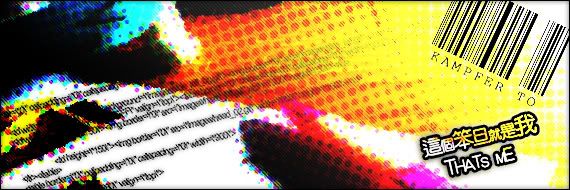野比大雄 寫:I have learnt a lot from your article. I think you have pointed out what we need to improve, I aslo agree that "News" is an objective but not a subjective. "News" really have a great effect to others, especially for those who has only a little knowledge about the news article. In this case, news.dorafans.com really has some "space for improve". I will tell him about that and I believe the webmaster will do something after he watch these comments.
But somethimes, when the webmaster really wants to add some comments on the article, what can he do? Seperate them from the news article? Do you think adding some reminder such as " 站長個人認為 " in front of the comments is enough? If you think so, Keith ( the webmaster of news.dorafans.com ) has done that too!
Lastly, Thanks for your comments. And sorry for my poor English( My English is really Bad! )
Hehe at least your English is fairly intelligible. Well, the sheer amount of grammatical mistakes in my messages can make any English teacher to scream in agony and suffer from a nervous breakdown. :P
Back to the topic, I think the fundamental principle on news reporting is "integrity." In other words, "a neutral stance," or simply "keeping the opinions out of the facts." The most prudent and effective way of achieving such is by separating the two. Given the architecture of the Wired, it doesn't really cost much than a few clicks to move part of the content to a new page.
As for the usefulness of terms like "In my opinion," "I think," "My personal view on this is." In a news article defined by the strictest sense, they are simply irrelevant. These terms are only useful for commentaries and reviews, where the author is supposed to spend a few paragraphs to introduce briefly the background of the issues to be discussed before jumping straight into his views. Granted, these terms can contribute a bit by playing the role as verbal barriers between facts and opinions. Yet in reality they are not as useful as they appear to be. A regular commentary (or a poorly-written news article) often has to jump between facts and opinions to reinforce the writer's views and stance. It is far too clumsy and annoying to use these words again and again. So the simplest solution is to keep facts and opinions separated completely.
In a traditional newspaper, due to cost, technical difficulties and other issues, it is possible to see the commentaries and editorials printed with the news articles on a same piece of paper. Even so, they are expected to be separated by clear, well-cut printed boundaries. Nevertheless I would not recommend such a practice to an online news agent. Indeed, "presenting both summary of facts and personal opinions together by different paragraphs" is the nature of reviews, not news articles. If your summer assignments include Book Reviews, you should well understand my point. As mentioned before, you do not need some rocket science knowledge nor an astronomical sum, to adhere to the most fundamental news casting principle of all. All you need is a sincere heart of respect towards your readers and journalism as a profession.
By the way the discussion (read: flaming) direction of which the Chinese-speaking posters are heading to has made me further disillusioned with the whole community. I am especially disappointed that the lead-poster has also degraded himself to the level of blind shouting and name-calling. Oh well, let me reiterate that the essence of any proper exchange and discussion is to "agree to disagree," or in Chinese, "求同存異."
~Doraneko



![叮噹小城神之使者[超級榮譽] 叮噹小城神之使者[超級榮譽]](./images/ranks/god_son_2.gif)

![叮噹小城守護神 [最高榮譽] 叮噹小城守護神 [最高榮譽]](./images/ranks/god2.gif)


![叮噹小城超級高層[榮譽] 叮噹小城超級高層[榮譽]](./images/ranks/highest2.gif)



 新主題
新主題